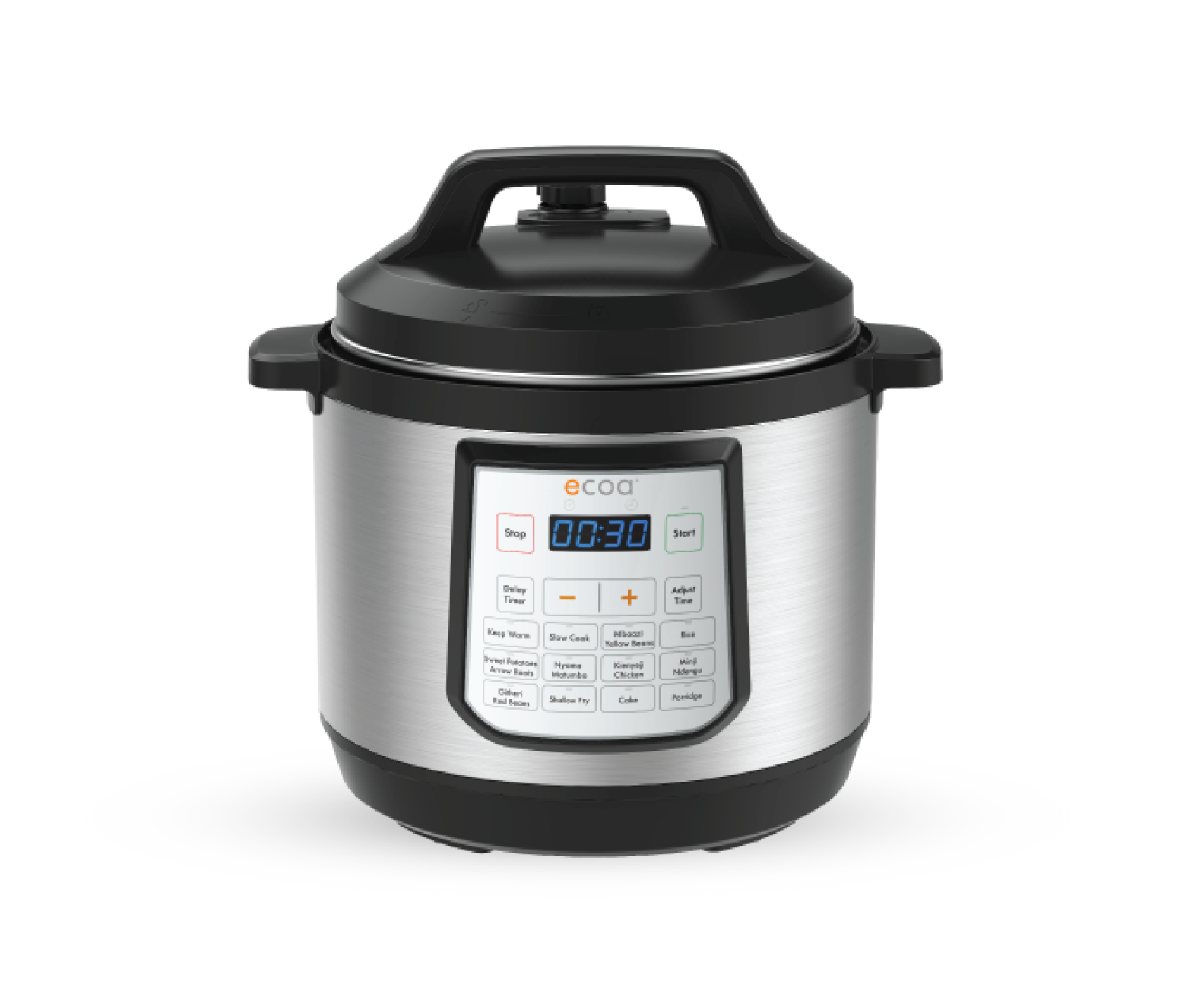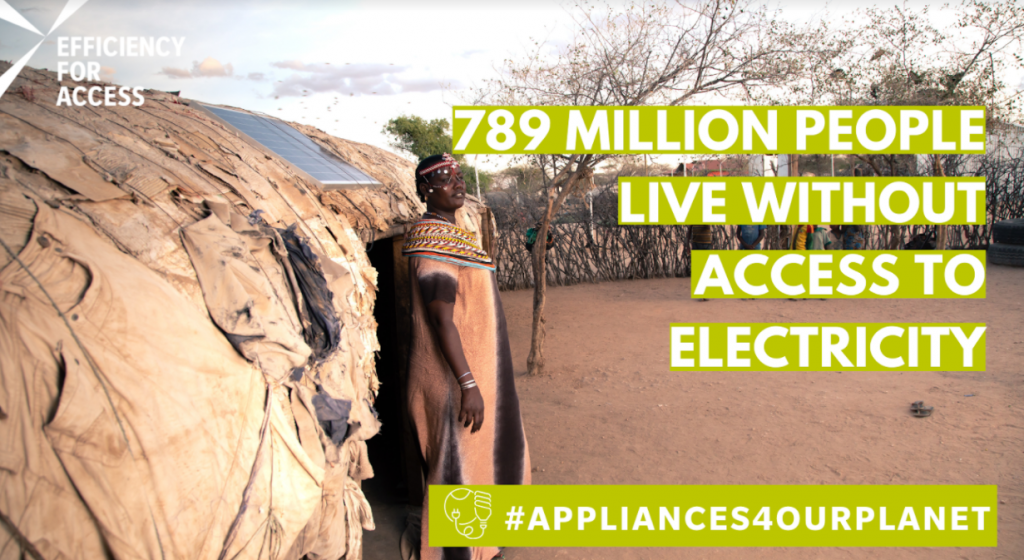
- Date
- 20th August 2021
- Categories
By Dr. Joni Cook (Loughborough University).
In this blog, find out more about pioneering cookstove design and manufacturing company BURN and their innovative ‘ECOA’ electric pressure cooker (EPC), which recently won the Affordability Prize in the 2020 Global LEAP Awards EPC competition, making this a second year in a row that BURN have been awarded this international accolade.
A growing body of evidence (e.g. this ESMAP report) is showing that, in many settings, modern energy cooking services are already cost-effective alternatives to traditional cooking practices using biomass. Cooking using electricity powered by renewable sources can reap multiple co-benefits in terms of health, gender and the environment. Improving the usability of modern cooking appliances, such as the electric pressure cooker (EPC), forms a critical part of addressing the socio-technological challenges underpinning the global transition to modern energy cooking services. Historically, the lack of focus on low and middle income country markets in EPC product design has meant that the needs and aspirations of everyday cooks in those countries has not always been reflected. This has prevented the widespread penetration and adoption of EPCs in underserved, high impact markets. The 2020 Global LEAP Awards Electric Pressure Cooker competition, implemented by CLASP in partnership with the MECS programme, and funded by UK aid, addressed this need by testing the usability of EPCs with cooks in the kitchens of Kenyan households alongside a rigorous laboratory testing phase in order to identify 13 high-quality, energy-efficient, and affordable EPCs that are appropriate for use in underserved markets. This included weak-grid areas where grid connections are intermittent and of inconsistent quality, as well as areas where energy comes from off-grid systems such as standalone DC solar home systems and renewable mini- or micro-grids [AC or DC].
Affordability and usability of EPCs are key requirements for everyday cooks in target underserved markets. Excelling in meeting these requirements is the ‘ECOA’ electric pressure cooker which was awarded the Affordability Prize in the 2020 Global LEAP Awards Electric Pressure Cooker competition, making this an impressive 2nd year running that cookstove design and manufacturing company BURN has been bestowed with the international accolade. BURN was launched in 2010 by CEO Peter Scott with the aim of reducing deforestation rates for charcoal production in sub-Saharan Africa through the design of more fuel-efficient cookstoves. The company’s remit commenced with the design and subsequent manufacture of fuel-efficient biomass cookstoves such as the ‘Jikokoa’, East Africa’s most popular charcoal stove with over 1 million units sold since 2014. A smaller quantity of charcoal is required due to the stove’s relatively high thermal efficiency of 54%, leading to CO2 savings of 4-5 tonnes per year compared with standard biomass stoves.
BURN’s focus has more recently pivoted to the design and manufacture of EPCs, with the ‘ECOA’ EPC launched to the Kenyan market in 2020. The ECOA won the Global LEAP’s Affordability Prize due to most closely meeting the prize’s requirements of the best overall value to end users based on the unit price, estimated operating costs, overall performance, and cooking capacity; cooking using the ECOA is on average 78% cheaper than charcoal with a cost per meal of 10 KSH and 5 times cheaper than LPG. The high level of usability of the ECOA is attributed to the intuitive interface that allows cooks to make East African dishes with a touch of a button, 9 safety features and ‘all in one’ cooking design which enables cooks to bake, simmer and boil.
BURN’s pioneering advances in EPC design build on findings from their MECS Low Energy Inclusive Appliances (LEIA) funded research and development project which developed and piloted a ‘guaranteed perfect meal’ EPC with features for the revolution of the electric cooking solution in Kenya and sub-Saharan Africa, and feed into their current project funded by a MECS Electric Cooking Outreach (ECO) grant which focuses on understanding preferences and market dynamics for EPCs in Uganda and Kenya. BURN, together with project partner, EnerGrow, are studying EPC usage through a cooking diaries study in Uganda which aims to better understand cooking practices of potential markets. In addition, the project team are conducting test sales in Kenya and Uganda to collect data related to the unique cooking needs of each market. BURN has also partnered Gamos to access an Innovate UK grant, which has led to further positioning for future developments. These connected actions will support the commercialization of a customized EPC designed specifically for the sub-Sahara African market. BURN’s overall goal is to provide affordable and clean cooking solutions to millions of households across sub-Saharan Africa while creating sustainable jobs.

What is really encouraging in light of the urgent need to accelerate global efforts in order to meet UN Sustainable Development Goal 7, access to affordable, reliable, sustainable and modern energy for all by 2030, is BURN’s plans to expand the commercial reach of their modern cooking products over the next 3 years beyond Kenya. In Kenya, 400 people, of which 50% are women, are employed at the solar-powered manufacturing facility in Ruiru. BURN intends to grow its existing presence in Tanzania, Uganda, Zambia, DRC, Nigeria, Sierra Leone and Ghana to expand access to electric cooking solutions. The results of the recently launched Global Market Assessment led by the University of Strathclyde MECS team, show that scaling up the transition to electric cooking is both viable and urgently needed in Tanzania and Uganda, amongst many other sub-Sahara African and ASEAN countries. As MECS is highlighting as part of collaborating partner Efficiency for Access’s ‘Solar Appliances for the Planet’ campaign in the run up to COP26 in Glasgow in November, it is vital to enhance access to affordable, high-performing, and inclusive appliances in developing countries that are powered by renewable energy sources. MECS unashamedly wishes BURN success as a pioneer in this field knowing that their success will encourage other clean cooking appliance enterprises to realise a rapid expansion of modern energy cooking services across Global South countries.
…………………………………….
Featured image: BURN’s ‘ECOA’ electric pressure cooker (image credit: BURN, 2020).